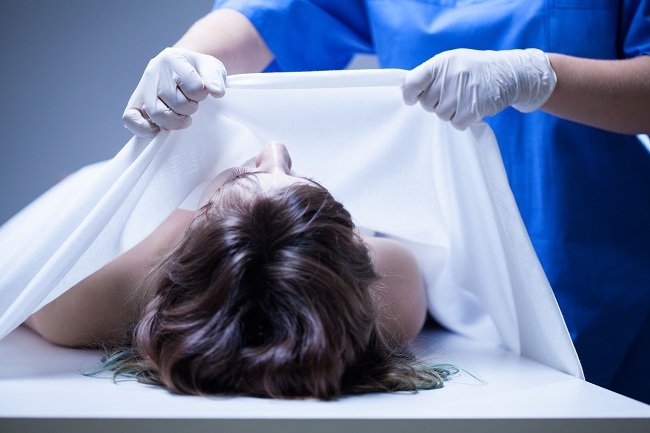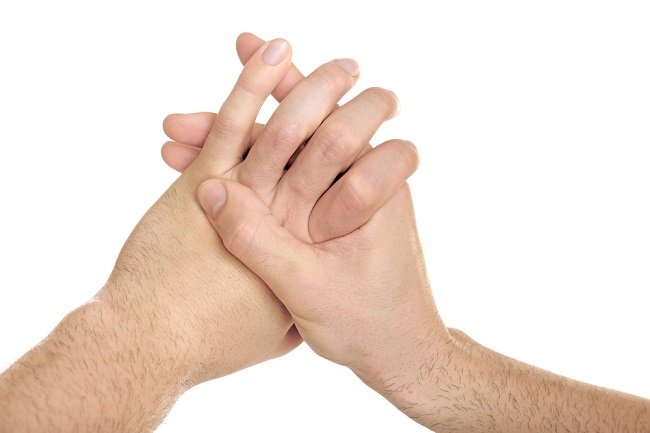Orthopedic doctors, traumatologists and reconstructive specialists, are doctors who are trained in treating injuries to the bones, muscles, and connective tissues of the body. This subspecialist doctor also plays an important role in treating severe injuries that have the potential to make the sufferer experience disability.
Orthopedics is a field of medical science that studies the health and disorders of bones, joints, muscles, and connective tissues, such as ligaments and tendons. Disturbances in these body parts can be caused by many things. One of them is injury or injury. In this case, the role of the traumatologist and reconstructive orthopedic doctor is needed.

In addition to handling cases of serious injuries, orthopedic doctors, traumatologists and reconstructive specialists, also treat cases of bone, joint, and muscle disorders due to genetic disorders or birth defects.
Conditions Treatable by an Orthopedic Traumatologist and Reconstructor
The following are conditions or disorders that an orthopedic traumatologist and reconstructive surgeon can treat:
- Injuries or fractures to bones and joints, including crush injury
- Bone deformities, for example due to injury, osteoporosis, tumors or cancer, to autoimmune diseases
- Osteomyelitis or infection of the bone and surrounding tissue
- Joint disorders, such as arthritis, ligament tears, bursitis, joint dislocations, and joint pain
- Injuries or fractures of the spine and pelvis
- Connective tissue disorders and injuries, eg tendinitis
- Disorders of the knee joint, including meniscus injuries and tears in the knee ligaments
- Muscle problems, such as muscle tears, hamstring injuries, and compartment syndrome
- Injuries to the hand and wrist, such as hand and wrist fractures and sprains
- Infection, injury, to soft tissue tumor or cancer
Actions that the Orthopedic Traumatologist and Reconstructionist Can Handle
An orthopedic surgeon, traumatologist and reconstructive surgeon, can diagnose muscle, bone, or tissue disorders and their severity, especially those caused by injury.
In determining the diagnosis, an orthopedic traumatologist and reconstructive specialist can perform a physical examination and supporting examinations, such as blood and urine tests, X-rays, ultrasound, CT scans, and MRIs.
After the diagnosis of orthopedic disorders in the patient is known, the orthopedic subspecialist in traumatology and reconstruction can perform treatment in the form of:
Administration of drugs
Doctors can prescribe medicines according to the patient's needs, for example, NSAIDs class of painkillers to treat pain, antibiotics to treat infections, to calcium and vitamin D supplements to support the healing process of bone and joint injuries.
Operation
In some cases, surgery may be needed to treat injuries to bones, joints, or connective tissue. The types of surgery that an orthopedic traumatologist and reconstructive surgeon can perform are:
- Joint replacement surgery, to replace the joint that has been damaged
- Internal fixation surgery (open reduction internal fiction), to repair damaged bone tissue by attaching pins, screws, or metal plates
- Fusion or fusion of bone tissue, especially in neck and spine surgery
- Osteotomy, to correct abnormalities, shape, and position of bones
- Soft tissue repair surgery, to repair severely damaged muscles, ligaments, or tendons
- Surgical removal of tumors in soft tissue and bone
- Vein and arterial reconstructive surgery
- Arthroscopy, to diagnose and treat disorders of the joints
- Amputation, if the bone or joint injury experienced by the patient is quite severe
Physiotherapy
To repair or improve the ability of problematic muscles, bones, and joints, an orthopedic traumatologist and reconstruction specialist will advise patients to undergo physiotherapy. Physiotherapy can be done after the patient has recovered from surgery.
In cases of severe injury that requires the patient to undergo amputation, an orthopedic traumatologist and reconstructive specialist can also advise the patient to use assistive devices or prosthetics.
In practice, orthopedic traumatologists and reconstruction specialists often work closely with other specialists, such as rheumatologists, anesthesiologists, orthopedic doctors, medical rehabilitation doctors, and internal medicine doctors.
The Right Time to Check with an Orthopedic Traumatologist and Reconstructor
You are advised to consult an orthopedic surgeon, a traumatologist and reconstructive specialist after receiving a referral from a general practitioner or orthopedic doctor. However, you can also immediately consult this subspecialist doctor if you experience the following symptoms:
- Muscle, joint, or bone pain that persists and doesn't improve after a few days
- Swelling of joints, muscles, or soft tissues accompanied by pain and a burning sensation to the touch
- Physical injuries that cause pain, difficulty moving, or open wounds with fractures
- Stiff muscles, joints, or bones
- Knee pain that doesn't get better or gets worse
- Tingling or numbness in certain body parts after an injury
- Changes in the shape of joints and bones, making it difficult to straighten or move
Preparation Before Visiting an Orthopedic Traumatologist and Reconstructor
There are several things that you should prepare before seeing an orthopedic surgeon, a traumatologist and reconstructionist, including:
- Write down the complaints or symptoms experienced.
- Make notes containing a history of the incident and time of injury, as well as the treatment that has been done, for example with drugs or certain actions such as massage and massage.
- Prepare documents containing medical history, medication history, or results of previous doctor's examinations, if any.
- Bring a referral letter from another doctor, if you are referred to an orthopedic surgeon, traumatologist and reconstruction.
You can consult an orthopedic doctor, traumatologist and reconstructive directly if you experience the complaints as previously mentioned.
If you are still in doubt, you can seek advice from an orthopedic doctor or general practitioner to determine the right orthopedic traumatologist and reconstruction specialist according to your condition.









